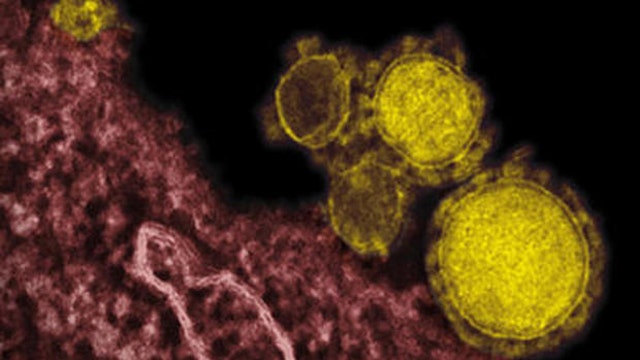Two Florida health care workers sick after exposure to MERS
One worker hospitalized, another quarantined
Two health workers at a hospital in Orlando, Florida, who were exposed to a patient with Middle East Respiratory Syndrome (MERS) have begun showing flu-like symptoms, and one of the two has been hospitalized.
Officials at the Dr. P. Phillips Hospital said on Tuesday the two health care workers were exposed to the patient - the second confirmed case of MERS on U.S. soil - in the emergency department before it became clear that he might be infected with the virus, which is often deadly.
The second health care worker is being isolated in his home and watched for signs of infection.
Hospital and local health officials said at a press conference that the MERS patient, also a health care worker, had made a visit last week to the Orlando Regional Medical Center to accompany another person who was having a medical procedure. The MERS patient was symptomatic at the time, but did not seek treatment.
Five health care workers from the regional medical center and another 15 from the Dr. P. Phillips Hospital are being tested for MERS, including the two patients who have developed symptoms.
Hospital officials said they are awaiting test results to determine whether any of the exposed hospital workers have MERS.
Health officials stress that MERS is not a risk to the general public, but it does spread among health care workers who have close contact with infected patients. When treated properly, MERS is most often not fatal.
Hospital officials said the MERS patient, who works in a hospital in Jeddah, Saudi Arabia, is doing well and currently has a low-grade fever and a slight cough.
MERS, which causes coughing, fever and sometimes fatal pneumonia, is a virus from the same family as SARS, or Severe Acute Respiratory Syndrome, which killed around 800 people worldwide after it first appeared in China in 2002.
There is no vaccine for MERS, and around a third of the 483 known to have been infected with it in Saudi Arabia have died.

